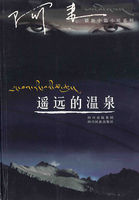That same philosopher of reality who has a sovereign contempt for all prejudices and superstitions is himself so deeply immersed in personal crotchets that he calls the popular prejudice against the Jews, inherited from the bigotry of the Middle Ages, a "natural judgment" based on "natural grounds", and he rises to the pyramidal heights of the assertion that "socialism is the only power which can oppose population conditions with a rather strong Jewish admixture" {D. Ph. 393}. (Conditions with a Jewish admixture! What "natural" German!)Enough of this. The grandiloquent boasts of legal erudition have as their basis -- at best -- only the most commonplace professional knowledge of quite an ordinary jurist of old Prussia. The sphere of legal and political science, the attainments in which Herr Dühring consistently expounds, "coincides" with the area where Prussian law holds sway. Apart from the Roman law, with which every jurist is fairly familiar, now even in England, his knowledge of law is confined wholly and entirely to Prussian law --that legal code of an enlightened patriarchal despotism which is written in a German such as Herr Dühring appears to have been trained in, and which, with its moral glosses, its juristic vagueness and inconsistency, its caning as a means of torture and punishment, belongs entirely to the pre-revolutionary epoch. Whatever exists beyond this Herr Dühring regards as evil [Matthew 5:37 -- Ed .] -- both modern civil French law, and English law with its quite peculiar development and its safeguarding of personal liberty, unknown anywhere on the Continent. The philosophy which "does not allow the validity of any merely apparent horizon, but in its powerfully revolutionising movement unfolds all earths and heavens of outer and inner nature" {430} -- has as its real horizon -- the boundaries of the six eastern provinces of old Prussia, [59] and in addition perhaps the few other patches of land where the noble Prussian law holds sway; and beyond this horizon it unfolds neither earths nor heavens, neither outer nor inner nature, but only a picture of the crassest ignorance of what is happening in the rest of the world.
It is hard to deal with morality and law without coming up against the question of so-called free will, of man's mental responsibility, of the relation between necessity and freedom. And the philosophy of reality also has not only one but even two solutions of this problem.
"All false theories of freedom must be replaced by, what we know from experience is the nature of the relation between rational judgment on the one hand and instinctive impulses on the other, a relation which so to speak unites them into a resultant force. The fundamental facts of this form of dynamics must be drawn from observation, and for the calculation in advance of events which have not yet occurred must also be estimated, as closely as possible , in general both as to their nature and magnitude.
In this manner the silly delusions of inner freedom, which people have chewed on and fed on for thousands of years, are not only cleared away in thoroughgoing fashion, but are replaced by something positive, which can be made use of for the practical regulation of life" {187}.
Viewed thus freedom consists in rational judgment pulling a man to the right while irrational impulses pull him to the left, and in this parallelogram of forces the actual movement proceeds in the direction of the diagonal.
Freedom is therefore the mean between judgment and impulse, reason and unreason, and its degree in each individual case can be determined on the basis of experience by a "personal equation", to use an astronomical expression. [60] But a few pages later on we find:
"We base moral responsibility on freedom, which however means nothing more to us than susceptibility to conscious motives in accordance with our natural and acquired intelligence. All such motives operate with the inevitability of natural law, notwithstanding an awareness of possible contrary actions; but it is precisely on this unavoidable compulsion that we rely when we apply the moral levers" {218}.














